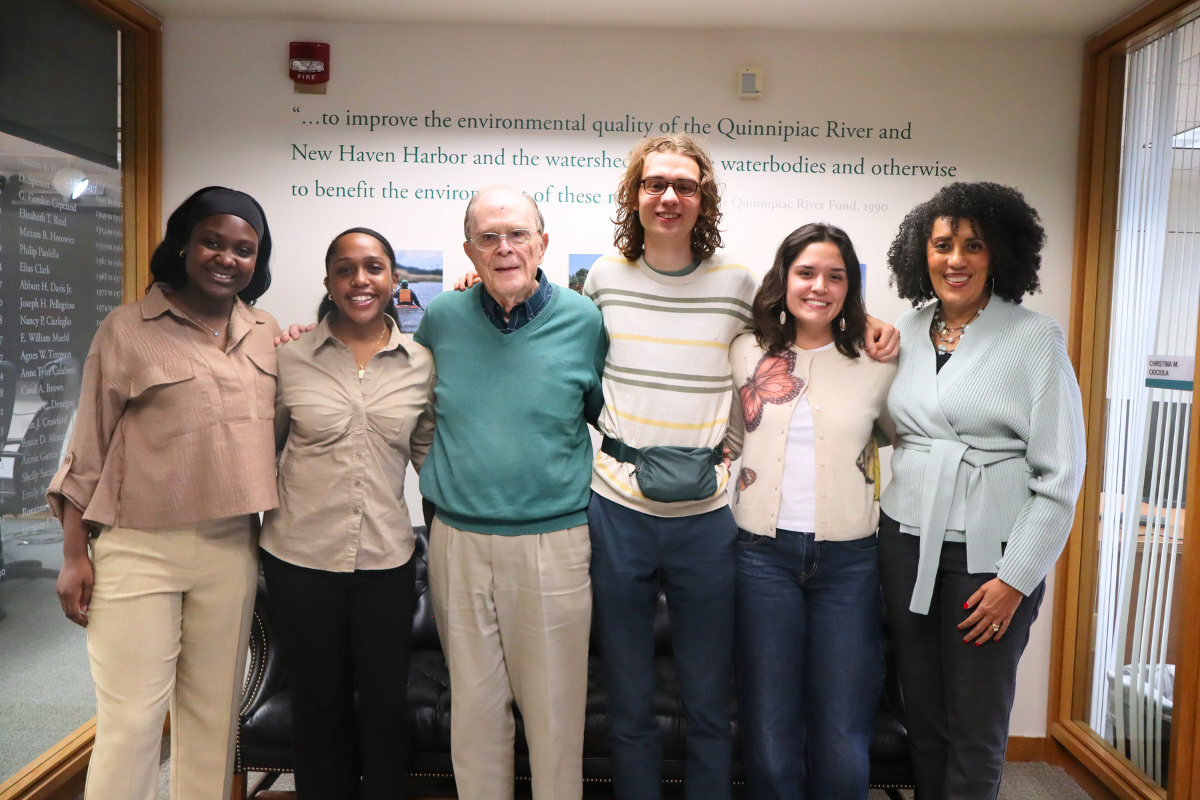2026 Chauncey Fellows to Pursue Passion Projects Around Time, Healing

For Thara Joseph, a senior studying ethics, politics and economics at Yale University, and a longtime musician, the unique rhythms of jazz can defy rigid, ticking tempos and instead swing against the beat. Playing jazz has inspired her to think about the pressures of time itself and ask the question: “How do we have a more humane relationship with time?”
Avery Maples, a history major at Yale, and a member of the Cherokee tribe, recently took a class that explored the biblical Book of Psalms and wrote her own psalm of lamentation to honor and mourn her ailing grandfather. The experience made her think about how others might benefit from a similar ritual of catharsis through art and sculpted a Cherokee version of a Byzantine incantation bowl inscribed with her psalm.
As newly-announced 2026 Chauncey Fellows, Joseph and Maples will have the opportunity to explore these ideas and develop projects for full year after graduating in the spring.
Now in its third year, the Chauncey Fellowship supports New Haven area college graduates in pursuing self-directed passion projects in public service or the arts. Created at The Community Foundation for Greater New Haven by the late Edward “Edder” Bennet, Yale Class of 1984, the fellowship honors Henry “Sam” Chauncey, the former secretary of Yale, founder of Science Park, President of Gaylord Hospital and, among countless other students, Bennet’s beloved mentor at Yale.
For Joseph, being able to open-endedly explore her passion project is crucial. “A question as broad as how to make our relationship with time more humane is so layered for so many different intersectionalities.”
By communicating the relationship between Black women and time, in particular, Joseph hopes to create an outlet for Black women to “express their frustrations, but then also maybe creative strategies” through art. Interviews with New Haveners will yield data that will inspire a multimedia public art project. She hopes to replicate the process across New Haven and “across time.”
“I hope my project does an intervention on the hurtfulness of time and things being left unresolved and unknown, especially from colonization and the colonization of history.”
Maples says she wonders if she might commission healing bowls to “spread around in places that need them,” like hospitals, elder care centers or domestic violence shelters. “There's so many places that these pieces of art can be. There's so much room for healing and spirituality in our community that is untouched, and we are feeling the effects of that.”
“I would like to call it the divine providence of this fellowship,” reflected Maples, “being able to sponsor this idea that I really tangibly had, that I had no way to expand upon. It is such a gift to be able to spend dedicated time teaching other people how to connect with what I have already found so much healing and happiness from.”
